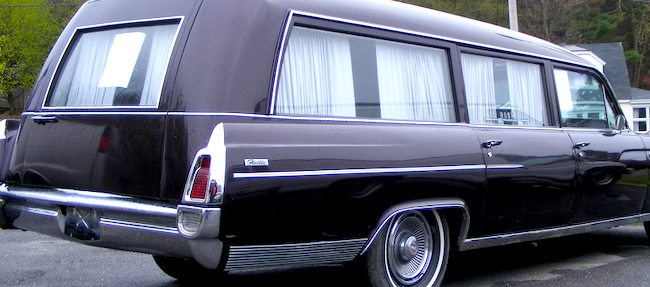A person should participate in a funeral that does not have enough participants (see 361:1); this sometimes even takes priority over participation in other religious activities (see 360:1;361:1). It is especially meritorious to accompany a body when it is taken out for burial (343:1;361:2); when the body passes by everyone must stand up and accompany it for at least a few steps (361:3-4). These laws do not apply when a disintegrated body is being moved, and such a body does not require a coffin (see 345:8;353:7;361:5; 403:6-7,10). A person is not required to help prepare a body for burial if there are organizations that are responsible for this (343:1;361:2). On procedures for carrying the dead out for burial see 358:3; on procedures after burial is complete see 376:4.
An appropriate eulogy should be delivered at a funeral (344:1-7,9-10). It is not forbidden to speak in the presence of the dead (see 343:2; 344:16), but Torah should not be discussed except in honor of the dead or in connection with the funeral (344:16-17;367:3,6;368:1). Crying is appropriate (344:1,3) but tearing the hair or flesh and burning the property of the dead are forbidden (344:11;348:1). Young children are not eulogized (see 344:4-6); for babies there is no funeral procession (344:8) and no coffin (see 353:4-5). On interrupting a funeral for prayers see 341:6;344:12-13;358:1-2;365:1; 403:9; on delivering a eulogy close to a holiday see 347:1-3. On multiple funerals see 344:14-15 and 354:1; on the funerals of scholars see 242:25-27;344:18-20;353:2-3;401:1,4-5; on the funerals of women and on participation of women in funerals see 355:1 and 359:1-2.
Funerals are not held for non-Jews (344:8; see 367:1), apostates (see 345:5-6), those who die while under a ban (see 344:13;345:4;377:2-3), or deliberate suicides (345:1-3), and the laws of death and mourning do not apply to their relatives (see 345:1,5), but these laws do apply in cases of accidental death (345:7).
On preparing a body for burial see 352:3-4. The body should lie on its back (362:2) and its face should be covered (353:1). It is customary to dress the body in white (352:2) and to put a prayer shawl on a man (see 351:2); expensive grave clothes should not be used (352:1). These laws do not apply to a body that is found or to a person who dies accidentally (see 364:4). It is forbidden to derive benefit from a coffin (363:5-6) or a mausoleum (364:1, and see 368:1-2) or from anything that is put in contact with the coffin with the intent of burying it with the body (349:1-4; see 350:1).
Burial should take place on the day of death; it may be delayed only if time is needed for preparations or for notification (357:1) and it must be done even against the wishes of the deceased (348:2-3). On burial at night see 401:6. A parent’s funeral should not be conducted hastily, but other funerals should be performed without delay (357:2).
The body should be buried in the ground, preferably not in a completely sealed coffin; see 362:1 and 363:4. The grave should be checked for three days to make certain that the body is not still alive (394:3). On burying two people together or near each other see 362:3-6;366:3-4; 368:3;403:8. Reburial of a body is permitted only if this was originally intended, or to move it to a more appropriate place or to the land of Israel, or to protect it (see 363:1-2); otherwise disinterment is forbidden (363:3,7).
Graves should be located at least 50 cubits away from the nearest house; see 365:2. On ownership, sale and inheritance of grave sites see 366:1-2 and 368:3. On proper conduct in a cemetery see 367:2-5;368:1. If a grave is found or if its location creates a public inconvenience it may be moved; see 364:2,5. When a grave is moved it is sometimes permissible to derive benefit from the site (see 364:1-2), but the site should not be used for disrespectful purposes (364:6;368:1). When a body is found it should be buried where it was found, but if it is found near a city it may be taken there for burial; see 364:3.
Shulchan Aruch, Copyright (c) 2000 ProjectGenesis, Inc.


